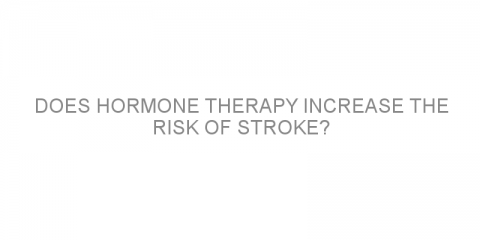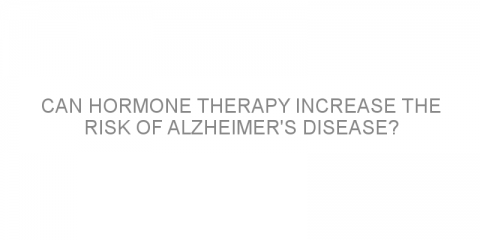In a nutshell This review examined the relationship between androgen deprivation therapy (ADT) and the risk of stroke. Researchers reported a moderate increase in the risk of stroke among prostate cancer patients undergoing ADT. Some background Androgen deprivation therapy (ADT) is a type of hormone therapy commonly used to treat prostate cancer....
Read MoreCurrent treatment status-Undergoing active treatment Posts on Medivizor
Reconsidering chemotherapy for older men with advanced prostate cancer
In a nutshell This study investigated the effects of health status in older patients with metastatic castration-resistant prostate cancer on treatment outcome with taxane-based chemotherapies. Researchers reported that taxane-based chemotherapies were associated with a significant survival benefit, regardless of age and health status. Some background...
Read MoreCan adding bevacizumab to chemotherapy before surgery improve response?
In a nutshell The authors aimed to evaluate the effectiveness and safety of combining bevacizumab (Avastin) and chemotherapy prior to surgery in breast cancer. This study showed that adding bevacizumab to chemotherapy increased response rates among women with non-metastatic (has not spread) breast cancer. Some background...
Read MorePreventing nausea and vomiting during chemotherapy
In a nutshell This review was conducted in an effort to update current guidelines for the prevention of nausea and vomiting in patients receiving chemotherapy. According to this update by the American Society of Clinical Oncology, all patients who receive highly emetogenic chemotherapies (treatments known to cause nausea and vomiting) should be...
Read MoreHow important is drug sequence in advanced prostate cancer survival?
In a nutshell The authors aimed to determine the benefit of sequencing docetaxel (Taxotere) and abiraterone (Zytiga) treatment to improve progression-free survival (patients who did not experience cancer growth after treatment) in patients with metastaic (cancer that has spread) hormone-resistant (cancer that does not respond to hormone...
Read MoreDealing with cancer pain: Low-dose morphine examined
In a nutshell This study compared weak opioids and low-dose morphine in providing pain relief for moderate cancer pain. Researchers concluded that low-dose morphine is more suitable as pain management for moderate cancer pain than weaker pain relievers. Some background The guidelines for cancer pain relief developed by the World Health...
Read MoreDealing with cancer pain: Low-dose morphine examined
In a nutshell This study compared weak opioids and low-dose morphine in providing pain relief for moderate cancer pain. Researchers concluded that low-dose morphine is more suitable as pain management for moderate cancer pain than weaker pain relievers. Some background The guidelines for cancer pain relief developed by the World Health...
Read MoreDealing with cancer pain: Low-dose morphine examined
In a nutshell This study compared weak opioids and low-dose morphine in providing pain relief for moderate cancer pain. Researchers concluded that low-dose morphine is more suitable as pain management for moderate cancer pain than weaker pain relievers. Some background The guidelines for cancer pain relief developed by the World Health...
Read MoreDealing with cancer pain: Low-dose morphine examined
In a nutshell This study compared weak opioids and low-dose morphine in providing pain relief for moderate cancer pain. Researchers concluded that low-dose morphine is more suitable as pain management for moderate cancer pain than weaker pain relievers. Some background The guidelines for cancer pain relief developed by the World Health...
Read MoreCombining therapies early for metastatic cancer
In a nutshell This study determined the benefit of combined hormone-chemotherapy in the treatment of metastatic prostate cancer. Researchers concluded that combination therapy resulted in significantly longer overall survival. Some background Androgen deprivation therapy (ADT) is a type of hormone therapy that targets androgens, the male sex...
Read MoreCan hormone therapy increase the risk of Alzheimer’s disease?
In a nutshell The authors aimed to determine the risk of Alzheimer's disease in patients who underwent hormone therapy for prostate cancer. Results concluded that there is an association between hormone therapy and Alzheimer's development, particularly in patients who underwent hormone therapy for more than 12 months. Some background...
Read MoreCetuximab retreatment in patients with treatment-resistant colorectal cancer
In a nutshell This study investigated whether retreatment with cetuximab (Erbitux) was effective in patients whose cancer had progressed after treatment with cetuximab or panitumumab (Vectibix). The results showed that retreatment was effective in patients who had responded to previous treatment. Some background Colorectal cancer progresses...
Read More














